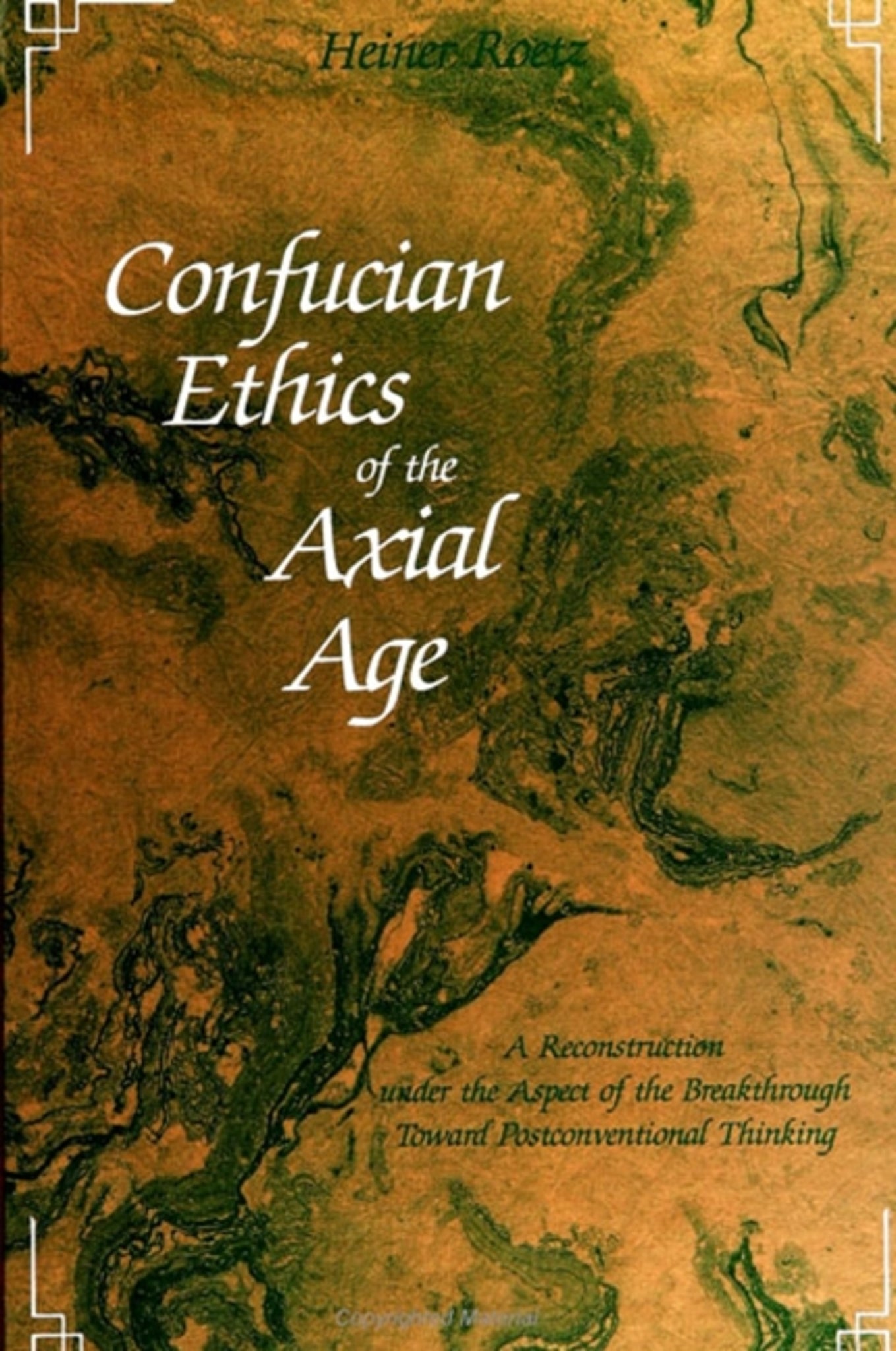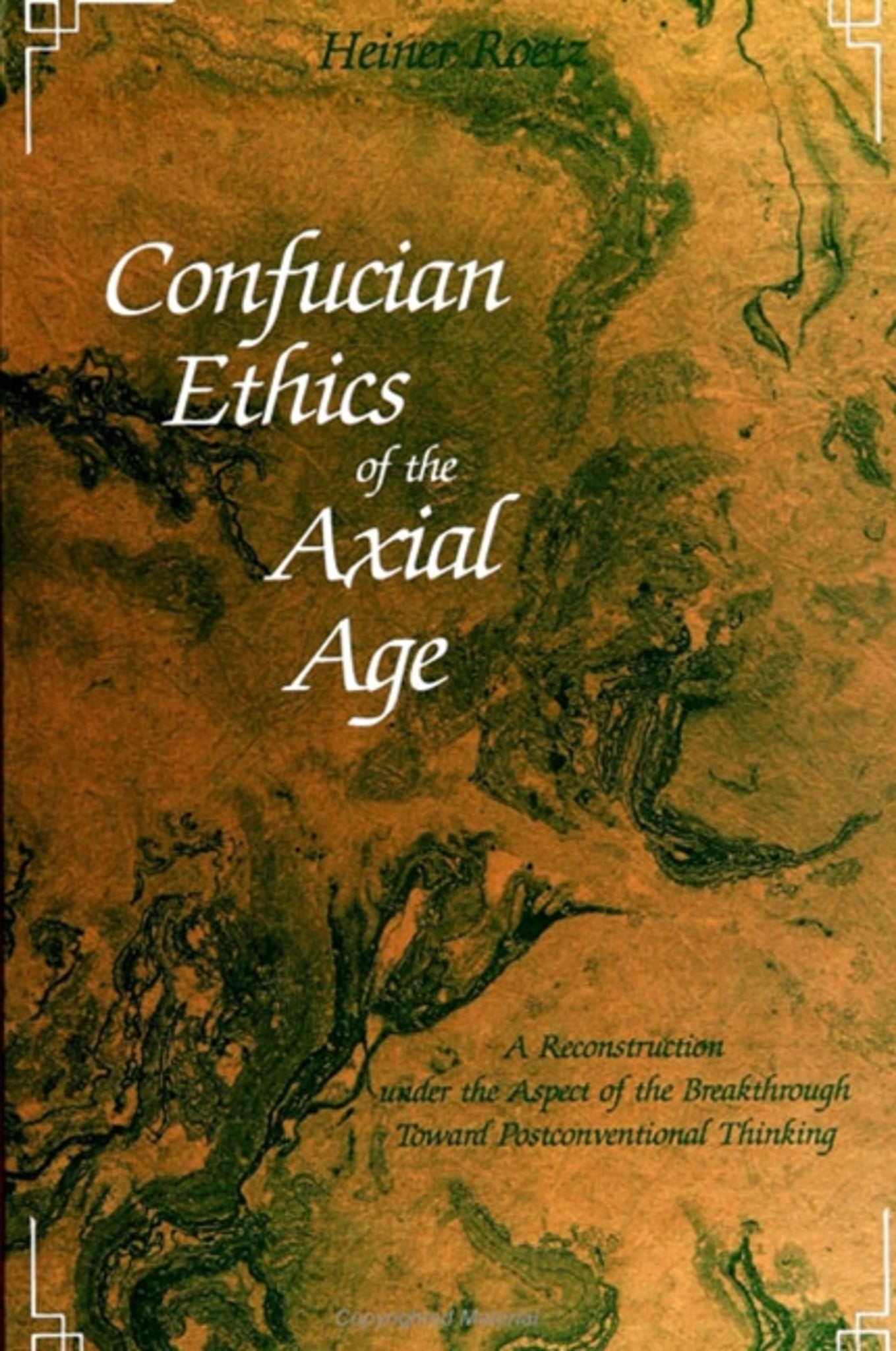We're sorry. An error has occurred
Please cancel or retry.
Confucian Ethics of the Axial Age

Some error occured while loading the Quick View. Please close the Quick View and try reloading the page.
Couldn't load pickup availability
- Format:
-
12 October 1993

Confucian Ethics of the Axial Age describes the formative period of Chinese culture-the last centuries of the Zhou dynasty-as an early epoch of enlightenment. It comprehensively reconstructs the ethical discourse as thought gradually became emancipated from tradition and institutions. Rather than presenting a chronology of different thinkers and works, this book discusses the systematic aspects of moral philosophies.
Based on original texts, Roetz focuses on filial piety; the conflict between the family and the state; the legitimating of the political order; the virtues of loyalty, friendship, and harmony; concepts of justice; the principle of humaneness and its different readings; the Golden Rule; the moral person; the autonomous self, motivation, decision and conscience; and various attempts to ground morality in religion, human nature, or reason.
These topics are arranged in such a way that the genetic structure and the logical development of the moral reasoning becomes apparent. From this detached perspective, conventional morality is either rejected or critically reestablished under the restraint of new abstract and universal norms. This makes the Chinese developments part of the ancient worldwide movement of enlightenment of the axial age.


Preface
Conventions
1. The Topicality of the Classical Moral Philosophy of China
2. Topics of the Western Reception of Chinese Ethics
A. Thought Form
B. Language
C. Socioeconomical and Political Conditions
D. Religion
3. Methodological Considerations: A Universalistic Heuristic of Enlightenment
A. Jaspers' Theory of the "Axial Age"
B. Kohlberg's Cognitive-Developmental Theory
4. The Heritage of the Pre-Confucian Epoch
A. Political and Social Changes
B. The Early Check upon Familism
C. The Expectation of Political Reciprocity
D. The Influence of Law and the Discovery of theMental Attitude in Jurisdiction
E. The Religion of Heaven
F. The Idea of Ecumene
G. The Discovery of the Ego
5. The Background of the Emergence of Chinese Moral Philosophy: The Dissolution of Conventional Morality in the Mirror of the Lunyu
6. The Family and the Virtue of Filial Piety
A. Filial Piety as CareB. Filial Piety as Obedience to Parents andSuperiors
C. The Limits of Obedience: Filial Piety as MoralVigilance
7. The State
A. The Theory: The Legitimation of the State
B. The Practice: Between Loyalty and Noncompliance
8. The Conflict between Family and State and the Problem of Tragedy
9. The Search for Postconventional Norms and Principles
A. The Dao and the One
B. Friendship
C. Meaure, Mean, and Harmony
D. Justice
10. Humaneness (ren)
A. The Position of Humaneness (ren) in theSystem of the Lunyu and Its Relation to Propriety (li )
B. The Concept of "Man"
C. Humaneness as a Feeling: Love, Family Love, and Compassion
D. Humaneness as Respect for the Other
E. The Golden Rule: Forms and Problems
11. The Moral Person
A. Competence of Decision
B. Autonomy of Judgment
C. Self-respect and Self-strengthening
D. Self-examination, Motivation, and Conscience
E. Autonomy of Action
F. Negative Sanctions: Punishment, Guilt, Shame,and Disgrace
G. The Reward of Virtue: Fame and Reputation versus Inner Happiness
12. The Problem of Responsibility
13. Groundings of Morals
A. The Role of Religion
B. Mengzi's Nativism
C. Xunzi's Rationalism
D. Cosmology
14. The Non-Confucian Schools
A. Mo Di's Utilitarianism
B. Yang Zhu's Hedonism
C. Daoist Naturalism
D. Legalism: Law and Order
15. Conclusion and Prospect
Endnotes
Bibliography



